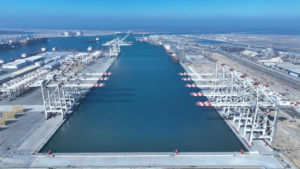West coast dock workers in Canada and their employers’ association reached a negotiated collective agreement on Sunday night with the assistance of Canada´s Industrial Relations Board (CIRB), as their intention is to put an end to a dispute that risked further disruptions at the country´s busiest ports.
The International Longshore and Warehouse Canada and the British Columbia Maritime Employers Association issued a joint statement yesterday saying a deal has been reached with the assistance of the Canada Industrial Relations Board.
Both the parties are recommending the ratification of the collective agreement, the statement said.
The negotiations between the union and the employers have been ongoing since February this year in an attempt to renew the industry wide collective agreement which expired March 31, 2023.
The agreement comes two days after workers turned down the terms of the settlement and after their call to come to the table and negotiate a deal that works for the members of the union and the industry.
Previous tentative agreements had been rejected by ILWU Canada’s members.
Canada´s labour minister Seamus O’Regan said on Saturday that he was informed that the union ILWU Canada voted to reject the tentative agreement with the BCMEA. The minister directed the CIRB to resolve the dispute.
Our economy cannot face further disruption from this dispute, the labour minister said.
Workers walked off the job over disagreements about several issues in order to protect current and future generations from the devastating impacts of port automation, as their union said, and to protect longshore workers from record high Inflation and “sky rocketing” cost of living.
The strike started at two of Canada’s busiest ports, the Port of Vancouver and the Port of Prince Rupert, as the negotiations for a new contract were ongoing.



